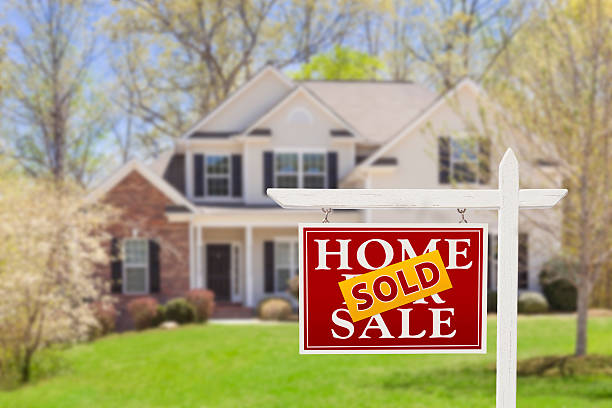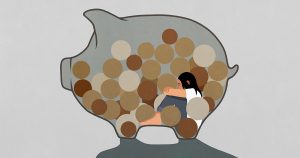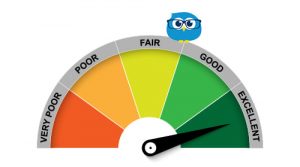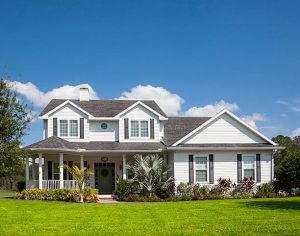When Mahi Amaha’s parents immigrated from Ethiopia to the United States during the 1970s, they saw homeownership as the path to achieving the American dream. They finally bought a home during the ’80s when interest rates were at their peak, and the terms of their loan weren’t great.
“Financially, it really put them in a bad place. And I saw that growing up,” Amaha said. “I told myself I would never buy.”
Even so, the 35-year-old ER physician-turned-investing coach and founder of Black Womxn Are Wealthy followed in her parents’ footsteps and gave homeownership a shot. She bought a home with her husband five years ago, but the couple quickly realized it wasn’t for them and ended up selling during the pandemic. They decided that they would be “renters for life.”
Amaha said society frequently sees leasing as “discarding cash” since you don’t possess anything toward the day’s end. Albeit that is fairly questionable, considering the time and cash it takes to possess a home and the specific market a future purchaser lives in, home purchasers do frequently accept they’ve made more than they have when they sell their property. Also, they might work under a similar confusion when they settle on the choice to purchase.
“I frequently hear from individuals who enormously overstate the profits they’ve encountered on land, particularly their main living place,” said Lauren Anastasio, an affirmed monetary organizer at SoFi. For instance, on the off chance that somebody purchased a house in 2015 for $500,000 and sold it in 2020 for $600,000, they may expect they got a 20% profit from their venture.
That is not exact, Anastasio said. For one’s purposes, they’re not representing swelling. “Every dollar is worth less in 2020 than it was in 2015,” she said. (For this situation, that hypothetical $100,000 acquire is now down to about $91,500.) Second, they’re not considering in the wide range of various costs they unloaded into the house during that time, for example, shutting costs when they purchased the property (and again in the event that they renegotiated), interest, charges, protection, support and then some. “On the off chance that we add all of that up, the genuine benefit is in reality a whole lot less.”
Here are the hidden costs to consider when deciding to buy for short-term value or evaluating the profit you’ll make on a potential sale.
The Math Is Much Tricker Than Sale Price Minus Purchase Price
While it’s possible to earn a decent return on a primary home, it probably won’t result in the ROI you imagine. Often, you have to stick around a long time before the investment begins to pay off.
While home prices have been surging lately, a look at the Case-Shiller U.S. National Home Price Index over the last 20 years shows prices increased just 3.8% on average. That’s not much over the rate of inflation, which was 2% annually for that same period.
Add in maintenance costs, insurance and property taxes, and you’re lucky if you break even, according to Joseph Hogue, a certified financial analyst and founder of My Stock Market Basics and the Let’s Talk Money channel on YouTube.
Best case scenario, a house is a constrained investment account, he said. That is on the grounds that you’re paying into a resource that you can later sell. “Fine for those can’t spending plan for saving in case they aren’t paying a home loan, yet the profits slack different speculations fundamentally as time goes on.”
We should investigate the numbers.
Say that today, you purchase a permanent spot for $250,000. You contribute a 20% initial installment ($50,000) and finance the excess $200,000 with a 30-year fixed rate credit at 4% premium. You likewise need to pay shutting expenses of $4,000, which you roll into the credit balance.
Starting at 2020, the normal mortgage holder clutches their property for a considerable length of time. So suppose you do likewise. As referenced above, home estimations will in general appreciate with the speed of swelling. However, how about we be somewhat more liberal and expect your home appreciated 5% per year.
Now, your home would be valued at $369,364 when you sell it in 2029. That is an increase of $119,364. Not awful, isn’t that so?
Then again, actually’s not unadulterated benefit. Consider these expenses related with possessing a home:
Mortgage Interest
Since you had to take out a loan to buy your home, you’ll be paying interest on it, including the $4,000 in closing costs you rolled into the principal. After eight years at 4%, you will have spent about $60,877 in interest charges.
Previously, a big incentive to buy a home was the ability to write off the mortgage interest on your taxes. However, thanks to the Tax Cuts and Jobs Act that went into effect in 2018, only 13.7% of people now qualify to itemize their taxes. The rest will take the standard deduction, making this potential savings opportunity irrelevant for most homeowners.
Maintenance
Homeowners are also responsible for the upkeep of their properties. There’s no landlord to call when the roof leaks or the water heater needs to be replaced ― that’s on you. In fact, homeowners should budget about 1% of the home’s purchase price for maintenance each year. For our $250,000 example, that means $20,000 in home repair costs at the end of eight years.
Home Insurance
You are likewise needed to buy protection for your property. The normal premium is $1,477, in view of a home with an abode inclusion measure of $250,000, as indicated by 2020 information. Duplicate that by eight years and you have another $11,816 in added costs.
Property Taxes
At long last, one of the significant costs that mortgage holders can hope to confront every year is local charges. Your home’s estimation is utilized to work out local charges, which are surveyed every year, however the real rate you pay will rely upon where you’re found. Across the country, the compelling local charge rate is 1.1% of the normal home estimation. For the wellbeing of effortlessness, we’ll gauge your assessments dependent on the first price tag without considering in appreciation, which implies you can add another $22,000 to the expense of possessing your home more than eight years.
Let’s add up all those expenses:
- Closing costs: $4,000
- Mortgage interest: $60,877
- Maintenance: $20,000
- Home insurance: $11,816
- Property taxes: $22,000
- Total: $118,693
That leaves you with a profit of $671 after eight years.
But let’s not forget that we’re assuming you’re going to sell your house after those eight years. If you work with a real estate broker, you can expect to pay a commission of 6% on the final sale price. If you sell your home for its current value of $369,364, you’re now in the hole for $21,491.
Regardless of whether you choose to sell without a representative, there are various potential costs related with selling your home, including land move charges, shutting costs and maybe even capital additions charges.
You might be pondering, imagine a scenario where you clutched your home for the full 30-year contract term as opposed to selling. That is a greatly improved standpoint for this situation.
In the event that we keep similar suspicions laid out over, your home would have appreciated to $1,080,486. You would have paid an aggregate of $150,614 in shutting expenses and home loan interest (accepting you won’t ever renegotiate). Another $75,000 would go toward support. Expecting your rate was rarely expanded, you’d burn through $44,310 on home protection. Furthermore, expecting your local charges were covered at a 2% yearly increment, you would have paid about $182,707 in charges.
A property worth $1,080,486 minus expenses totaling $452,631 leaves you with a profit of $627,855 over 30 years.
Other Factors To Consider Before Buying Or Selling
One catch with viewing your home as a short-term investment is that your wealth is tied up in the property. Your home may be worth a certain amount on paper, but you have to sell it to actually access your accumulated wealth. Not only does selling a home cost money, but you aren’t guaranteed to sell for what you believe the home is worth. And you have to wait for a buyer to come along, which could take months or even years if it’s not a competitive market.
One option for getting access to the cash tied up in your investment is to take out a home equity loan or line of credit. However, this option limits how much of your home’s value you can actually leverage. Plus, you need to qualify based on your credit and other factors, and it once again puts you back in debt.
That’s why Amaha prefers to rent while putting her extra cash in the market. It offers much more flexibility. “It’s such a relief to rent,” Amaha said. “If anything breaks down, if there’s any issue at all, it’s not on us.” She added that renting allows her family to plan out the next few years of their wealth-building strategy knowing that there’s no house to hold them back or derail their plans.
Obviously, the remarkable housing market where you live will have a major effect.
“While thinking about the monetary advantage of buying a home, the regularly utilized expression ‘area, area, area’ rings a bell,” said Mark Hamrick, senior financial investigator at Bankrate. “Whenever checked out across the span of the U.S., and across business sectors and areas, there are generally shifted results throughout extensive stretches of time as for the degrees of home value appreciation or deficiency in that department.”
Truth be told, Hamrick said that his folks’ home that they bought 50 years prior in his old neighborhood along the Kansas-Oklahoma line is worth with regards to a similar sum today. That is most likely a vastly different encounter from somebody who purchased in California a very long while prior.
Eventually, the choice to lease or purchase is profoundly close to home. One significant factor to consider is whether it’s less expensive to purchase versus lease in your ideal area (it’s less expensive to possess in 24 of 50 significant business sectors, as indicated by one review).
Likewise think about your ideal way of life and qualities. There are other valid justifications to purchase a house other than the humble monetary benefit. For one’s purposes, possessing a home gives a conviction that all is good and a sensation of having a place. Mortgage holders contribute straightforwardly to their networks by covering local charges. Perhaps you need to get your children into a specific school region.
A house is likewise yours to plan and keep up with anyway you wish. In case you’re the kind of individual who loves spending Saturday at Home Depot gathering supplies for another DIY project, homeownership might be intended for you.
Homeownership is likewise a vital way to generational abundance building. It’s a resource that you can pass down to your kids, surrendering them a leg. Amaha noticed that is especially significant for ethnic minorities, who have generally been banned from claiming homes, hindering financial portability and adding to the racial abundance hole.
Likewise with ventures of any kinds, Hamrick said, your outcomes might fluctuate. “However, putting money on a strong profit from a home buy is extremely unsafe without a doubt.”








32 thoughts on “The ROI On A House Isn’t Probably As High As You think.”
Comments are closed.